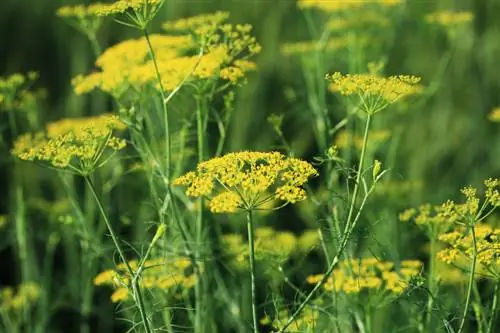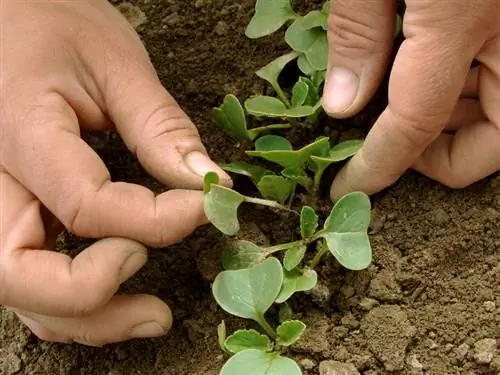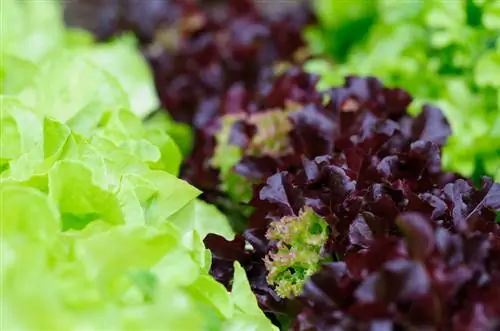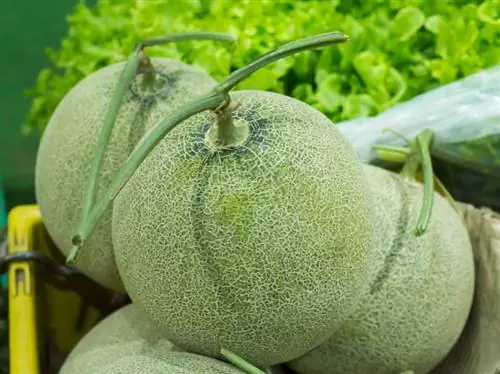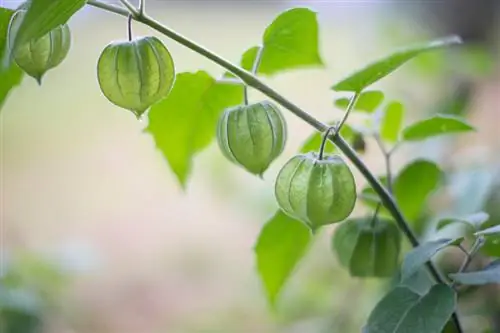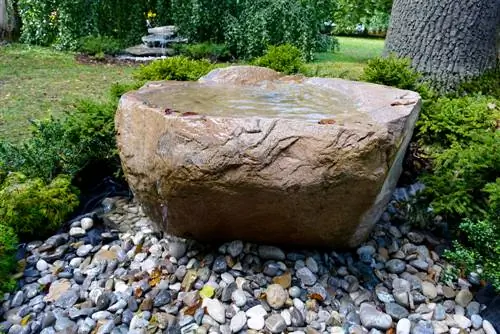- Author admin leonars@hobbygardeners.com.
- Public 2023-12-16 16:46.
- Last modified 2025-01-23 11:20.
Dill (Anethum graveolens) is one of the types of herbs whose aroma is best used when processed fresh to refine various cooking recipes. It is therefore a good idea to grow it in your own garden or in a pot on a sunny balcony.
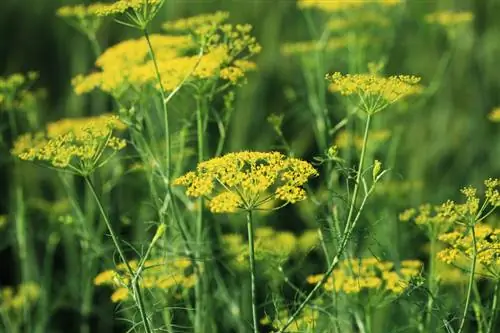
What are the properties of dill?
Profile Dill (Anethum graveolens): Dill is an annual herb that thrives best in full sun, warm locations. Sowing takes place directly at the site from the end of April to June. The plant is not very susceptible to diseases and pests and is often used to refine fish dishes, potatoes, salads and sauces.
What location requirements does dill have?
Although dill feels very comfortable in full sun and warm locations, its roots should never dry out completely. Therefore, sowing within a raised bed or in a tall pot is advantageous. If you enrich the soil at the planned location with some well-seasoned compost before sowing, it will be unnecessary to fertilize the plants during the growing season.
When is dill best grown?
Since dill does not usually survive transplant attempts very well, the dill seeds should be sown directly on site from around the end of April when there is no frost. If you would like to harvest ripe dill seeds from the flower umbels yourself, you should have sown the dill by June at the latest. You can harvest the entire dill plants and process them for storage by autumn, as dill is an annual plant.
Is dill susceptible to diseases and pests?
Basically, dill is not very susceptible to diseases and pests, apart from an occasional aphid infestation. These can be washed off with a sharp jet of water from the garden hose. However, overhead watering should be avoided if possible in order not to increase the likelihood of diseases such as cone blight, which manifests itself through brown discoloration. Dill planted between cabbage and other vegetables has a protective effect against cabbage white butterflies and other vegetable pests.
What can dill be used for?
The delicately spicy taste of dill can be used in many kitchen recipes, such as:
- Dill oil for fish dishes and cucumber salad
- Dil vinegar for salads
- Dill potatoes
- Sauces and marinades for meat dishes
- pickling salmon with whole dill sprigs
Tips & Tricks
Only harvest the amount of dill you have grown yourself at the moment, as freshly cut dill only has a very short shelf life if unprocessed.

